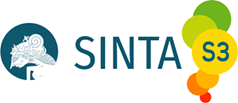Validitas LKPD Berdiferensiasi Materi SPLDV Untuk Mendukung Kemampuan Computational Thinking Dengan Konteks Lokal Musi Banyuasin
DOI:
https://doi.org/10.33394/mpm.v13i1.15877Keywords:
Validity of LKPD, Differentiation Learning, System of Linear Equations In Two Variables, Computational Thinking, Local Wisdom Of Musi Banyuasin.Abstract
This study aims to develop Student Worksheets (LKPD) through differentiation learning to support students' computational thinking skills in studying and understanding the material of two-variable linear equation systems. Computational Thinking skills include several important elements such as decomposition, pattern recognition, abstraction, and algorithmic thinking. Differentiation learning is designed to accommodate the diversity of interests, learning styles and abilities of each student. This study uses the Research and Development (R&D) method with the ADDIE model consisting of five stages, namely: analysis, design, development, implementation, and evaluation. There is a validation process included in the development stage, the validation process is carried out by researchers together with an expert review (validator) consisting of 2 lecturers from the mathematics education study program at Raden Fatah State Islamic University, Palembang and 1 mathematics teacher. The validation results show that the score obtained in the content aspect is 3.90 with valid criteria results. in the construct aspect, they got a score of 4.10 with valid criteria results, and they got a score of 4.21 in the language aspect with very valid criteria results. Based on these findings, the differentiation-based LKPD developed in the context of Musi Banyuasin local wisdom was declared valid and suitable for use to support increasing students' computational thinking abilities
Downloads
Published
How to Cite
Issue
Section
Citation Check
License
Authors who publish with this journal agree to the following terms:
- Authors retain copyright and grant the journal right of first publication with the work simultaneously licensed under a Creative Commons Attribution License that allows others to share the work with an acknowledgement of the work's authorship and initial publication in this journal.
- Authors are able to enter into separate, additional contractual arrangements for the non-exclusive distribution of the journal's published version of the work (e.g., post it to an institutional repository or publish it in a book), with an acknowledgement of its initial publication in this journal.
- Authors are permitted and encouraged to post their work online (e.g., in institutional repositories or on their website) prior to and during the submission process, as it can lead to productive exchanges, as well as earlier and greater citation of published work (See The Effect of Open Access).
Â













